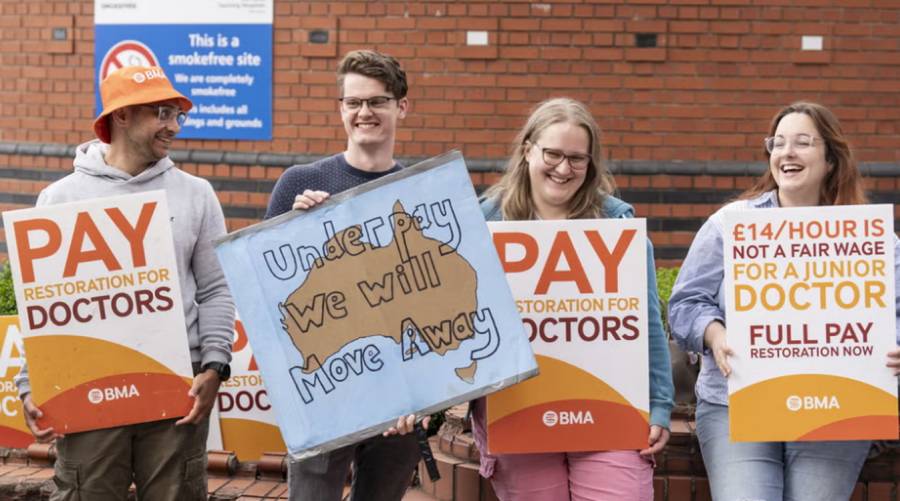
LONDON, ENGLAND: Junior British doctors’ strike for pay continues Junior doctors in England are entering their fifth round of strike action as their dispute with the government over pay continues, showing no signs of being resolved.
The British Medical Association (BMA), which represents these doctors, gained significant attention recently by asserting that the pay for its members has fallen so far behind inflation that they would find more lucrative opportunities working in coffee shops than in hospitals. In response, the government countered this claim by stating that the average earnings of junior doctors range between £20 and £30 per hour.
However, it's important to note that the term "junior doctor" is quite broad, encompassing both recent medical school graduates and those with a decade or more of experience. Additionally, the remuneration greatly varies, contingent upon the individual doctor's skill level and specialisation.
Dr Jane Smith, who is in her first year of practice, disclosed that her effective hourly rate, considering her work hours, including nights and weekends, amounts to just under £15. Conversely, Dr David Johnson, a doctor with a decade of experience and specialised expertise, earns approximately £30 per hour. Nonetheless, Dr Johnson clarified that the added hours, often without compensation, coupled with the considerable stress of the profession, make the compensation feel less rewarding.
"These extended strike actions underscore the growing frustration and dissatisfaction among junior doctors regarding their pay and working conditions," remarked Dr Samantha Brown, a spokesperson for the BMA. "We implore the government to return to the negotiating table with a solution that is fair and sustainable, recognising the valuable contributions junior doctors make to the healthcare system."
The BMA continues to call upon the government to address the wage disparity and work towards a resolution that is both fair and reflective of the dedication and hard work exhibited by junior doctors. Meanwhile, hospitals have put contingency plans in place to minimise disruptions to patient care during the strike.
Since December, nearly 780,000 hospital appointments have been postponed due to strikes by NHS staff. NHS England attributes the growing number of individuals awaiting treatment to this factor.
In an attempt to redress what they assert are 15 years of wage growth below the inflation rate, the BMA has requested a 35pc pay increase. In response, the government has offered junior doctors a 6pc salary hike along with a £1,250 bonus, resulting in an average increment of nearly 9pc. The government has firmly stated that this is its final offer and aligns with recommendations from an independent pay review body.
Health Secretary Steve Barclay criticised the strikes, highlighting the adverse impact on patients and urging the BMA to halt its industrial action. "Patients are bearing the brunt of the ongoing strikes across the NHS, and any further action by the BMA will lead to more postponed appointments and procedures," Barclay stated. "While I remain open to discussions on enhancing doctors' working conditions, this pay award is definitive. I urge the BMA to terminate its strikes immediately."


